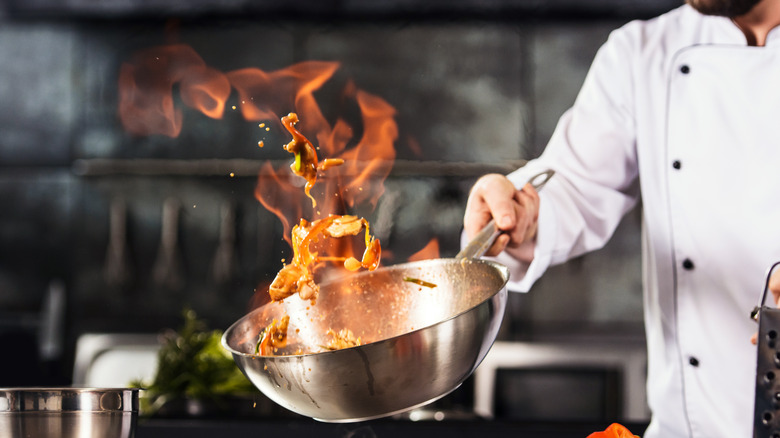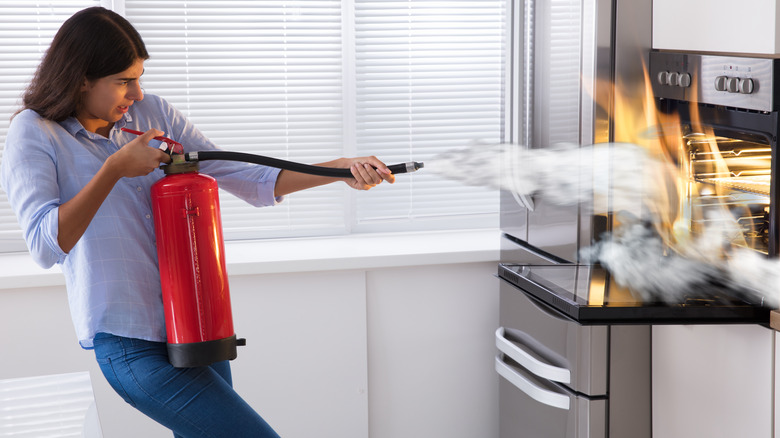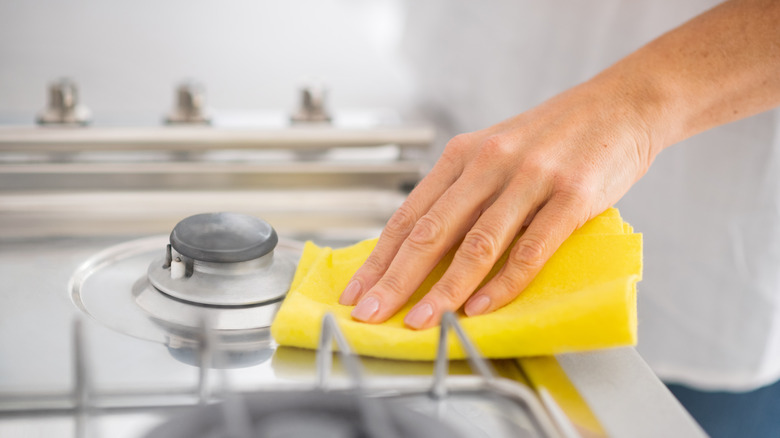This Is The Most Common Cause Of Kitchen Fires
Playing with fire can be dangerous, and oftentimes advanced cooking techniques require a lot of heat and flames. And as the saying goes — as attributed to then-Senator Harry S. Truman, per Ginger Software — if you can't handle the heat, get out of the kitchen.
However, getting out of the kitchen when one is in the midst of cooking may in fact be the worst idea possible, especially if you're feeling overwhelmed. Home kitchen fires are serious and can even result in civilian deaths. According to the National Fire Protection Association, from 2014 through 2018, fire departments responded to an average of 172,900 home cooking fires per year, and cooking fires were the ignition for half of home fires overall.
Cooking fires are not all created equal when there are so many ways and ingredients to fry, broil, and simmer; however, the number one cause of kitchen fires may surprise you.
Unattended cooking is the leading cause of kitchen fires
Kitchen fires can originate in a few ways, such as accidentally turning on a stove or forgetting to turn it off, leaving messes, having heat sources too close to combustible materials, or throwing aside or abandoning material that may catch on flame. But the leading cause of kitchen fires is actually unattended cooking, as reported by Burnshield.
Many types of cooking require constant surveillance, and if one leaves the kitchen, there's potential for disaster to occur. One fire in Maine was caused by someone leaving cooking oil to heat and then, while waiting in an adjacent room, they fell asleep and in their absence, the oil began to burn to fatal consequences. So, the best way to prevent a kitchen fire is to never leave the premises when things are getting hot. The cooking material matters too; fatty and greasy ingredients like oil, butter, grease, and lard lead to higher incidences of death and injury.
Safety measures to prevent kitchen fires
In the event you find yourself face to face with a grease fire, it's important to never throw water on it. The best way to contain a small oil fire is to smother it by sliding a lid over the pan and then turning off the heat source immediately. Read more here for the full rundown on safely extinguishing a grease fire.
Other safety precautions that are a must, per Travelers: wear tight, fitted, and rolled sleeves (so they are not as susceptible to catching fire); clean up any splattered or spilled grease, and don't throw it into a garbage can where it can catch flames; keep the oven clear of any food or other materials; and always have a fire extinguisher on hand. If you've got fancier equipment such as a pizza oven, make sure to adapt safety measures according to your model.


